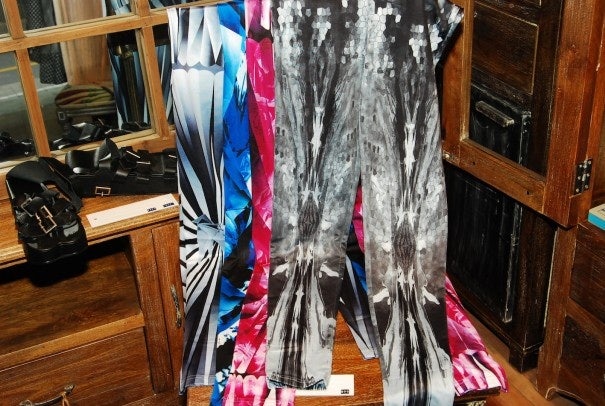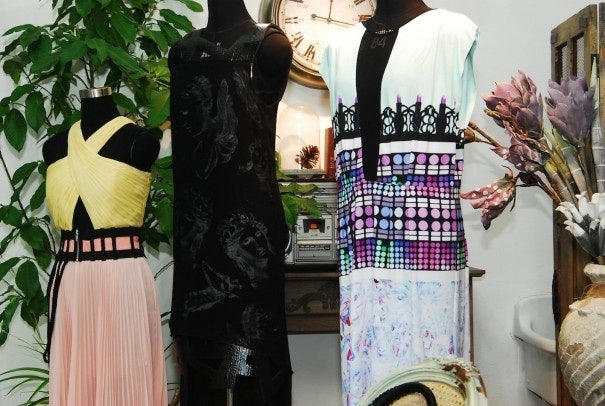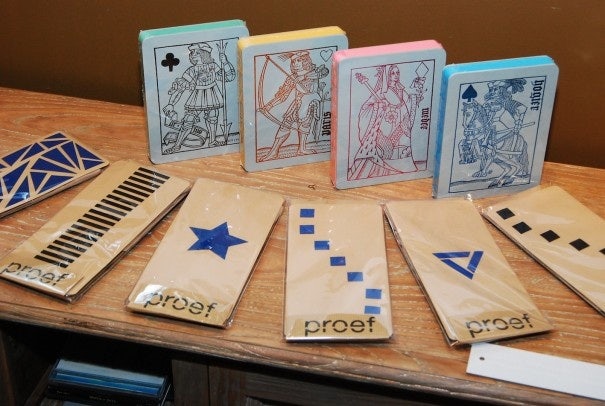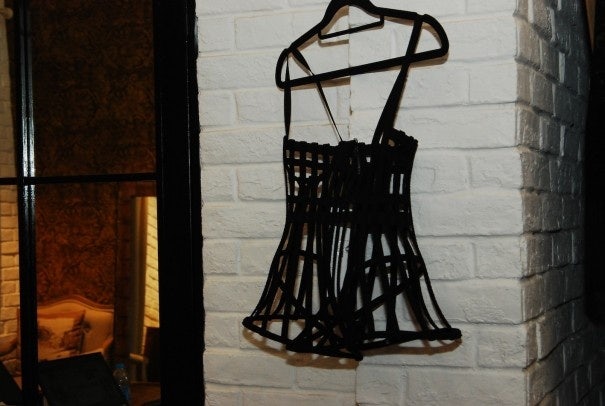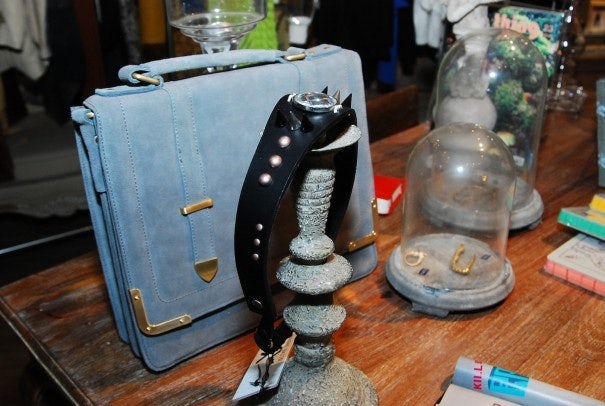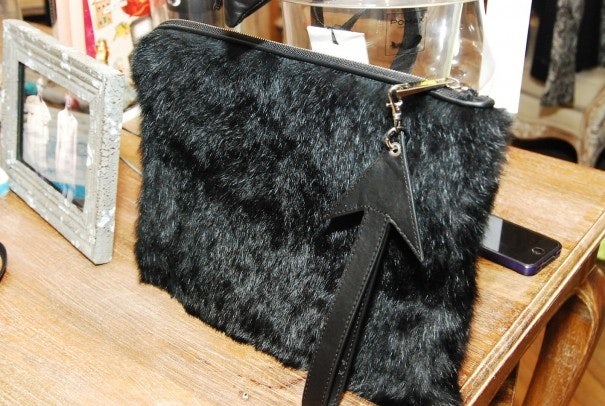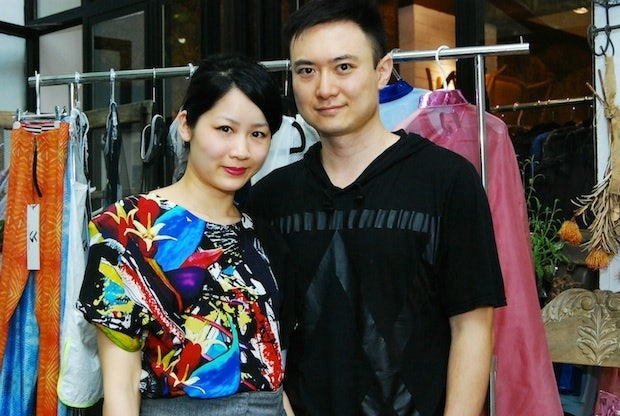Independent Designer & Online Boutique Now In Shanghai#
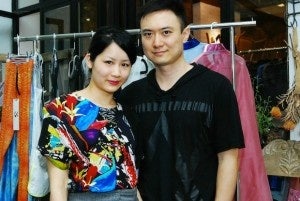
With the demands of China's fashion-forward demographic becoming more diverse, multi-brand boutiques are eagerly stepping in to fill an increasingly lucrative gap in the market. Along with established brick-and-mortar multi-brand stores like Hong Kong's JOYCE, Lane Crawford, and IT, home-grown retailers in Beijing and Shanghai fill an important role in the development of China's fashion scene, stocking and promoting up-and-coming domestic and international designers. Along with Beijing's Triple-Major and Dong Liang, Shanghai boutiques like Le Lutin, Alter, Tips and THE VILLA give label obsessives a chance to get their hands on designers that would otherwise be hard-to-find in China.
Recently, China's growing multi-brand boutique scene was joined by
The#
Olive Shoppe#
, formerly an eBay vintage store based in California, which sells a mix of independent international designer brands via an innovative on- and offline strategy that just may be the future of high-end retail in China. Making its (physical) debut with a pop-up shop at 812 Julu Lu this spring, a visit by the UK's most popular fashion blogger Susanna Lau (Style Bubble) last month sent local fashionistas into a frenzy, helping the pop-up nearly sell out within a week. In addition to its Julu Lu pop-up, The Olive Shoppe further expanded its physical presence in Shanghai via a guest section at the nearby Dong Liang on burgeoning fashion hotspot Fumin Lu.
The Olive Shoppe is owned and operated by Taiwan-born, US-bred Elaine and Beijing-born Stanley, who moved with his parents to the United States while in middle school. Having met in college, Elaine and Stanley's common interest in fashion led them to launch their online vintage store despite having little previous experience in the fashion world. As a result of their innate curatorial skills and eye for fashion, The Olive Shoppe quickly gained a following, and through extensive travel, Elaine and Stanley got into contact with up-and-coming designers from around the world. Currently, The Olive Shoppe sells more than 20 independent labels, including Kerhao, WWA, Belle Sauvage, Two Weeks, Three Floor, Daniel Palillo, Chromat, Mata Hari and Proef. In addition to its official English-language site, theoliveshoppe.com, The Olive Shoppe serves Chinese customers via its Taobao store.
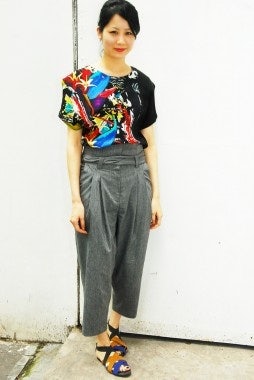
Based in Shanghai for the moment, Elaine is in charge of modeling and procurement, while Stanley handles marketing and PR. Recently, Jing Daily met up with Elaine and Stanley to discuss their innovative (and nomadic) business philosophy and vision, and how it fits in a complicated and ever-changing China. Interview translated from the original Chinese.
Jing Daily (JD):#
The Olive Shoppe appeals to a very particular fashion-loving niche. How do you target this market segment?#
Stanley#
: We want to give shoppers a unique fashion experience, options you can't find at chain stores, which tend to be pretty homogenized. We're not exactly in the luxury side of the market, but in one we hope younger female shoppers can afford. Actually, The Olive Shoppe brand itself isn't just in China, we're targeting a niche market worldwide. Though our profile is somewhat higher in Tokyo and London, our Pop-up store has helped us link up with Shanghai's adventurous shoppers.
JD: How do you deal with import duties?#
Stanley#
: This is inevitably a problem. But even in the US and Europe there are no shortage of duties. Compared to operating a physical designer boutique, the operating costs of an online store are quite low, so even after working in the import taxes our prices are still pretty good. In addition, international designers' prices are fairly standardized, so if a designer wants to raise his or her prices too high we won't stock them. For some brands, like Finland's Daniel Palillo, prices on The Olive Shoppe are better than in Hong Kong.
JD: What's in stock on The Olive Shoppe right now?#
Elaine#
: We do S/S and A/W, two seasons. When we get new batches, we share that information via our Weibo.
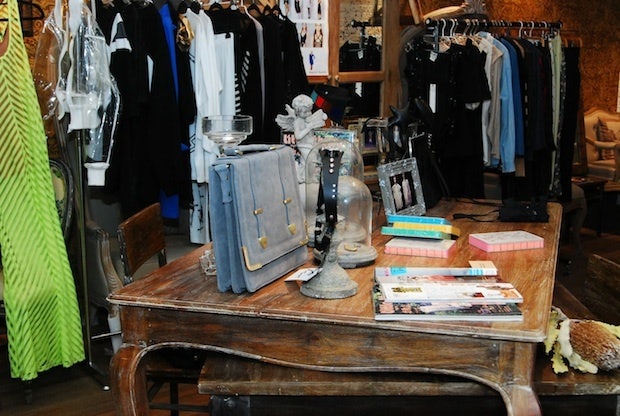
JD: In an earlier interview, you indicated that The Olive Shoppe may travel next to Beijing, Shenzhen and Chengdu. We've previously seen this kind of nomadic store concept from people like Ritchie of Triple-Major. Can you say something about your experience with this style of shop?#
Stanley#
: Actually, we started around the same time as Ritchie, but took a different direction. Ritchie first opened a physical store [in Beijing], then later branched into an online store. We started online, and now are slowly experimenting with physical locations. Opening a boutique takes a little luck, because you have to find a short-term venue, which is tough. For our pop-up on Julu Lu, a furniture store owner was willing to give us a short-term lease. On this try, we've been able to make a lot of good friends. Our next stop is Beijing.
JD: Can you tell us a little about your partnership with Dong Liang? What's the difference between your pop-ups in Dong Liang and on Julu Lu?#
Stanley#
: We've always admired Dong Liang. We were introduced to them by mutual friends and quickly started exploring the idea of working together. Since Dong Liang specializes in stocking domestic Chinese designer brands, and The Olive Shoppe focuses on international designers, we thought it'd be a fun and unusual sort of collision.
Elaine#
: For the Dong Liang store, we've had to choose items that are more consistent with their style. Like our transparent jacket, it really doesn't fit in at Dong Liang.
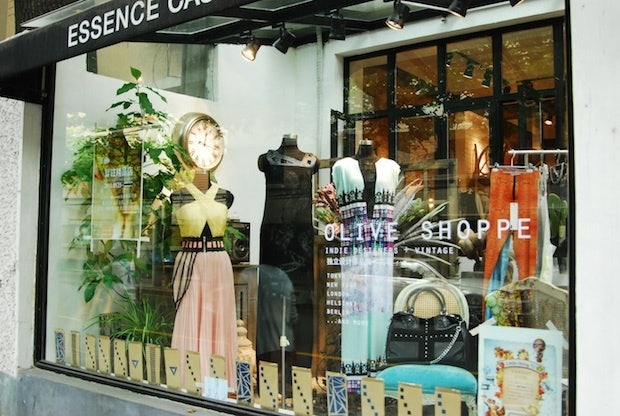
JD: Elaine, you've got a really distinctive personal style. What's your favorite magazine? Who are your favorite international and Chinese designers?#
Elaine#
: I mostly read imported Japanese or British magazines and NYLON from the US. Lately I've been pretty busy, so I haven't kept up too much with them. Mostly I just read blogs. In terms of my favorite designers, I like some niche designers, really the ones we stock at the store. As for Chinese designers, I like Liu Qingyang's (刘清扬) CHICTOPIA.
JD: Is there anything else you think Jing Daily readers would like to know about The Olive Shoppe?#
Stanley#
: This pop-up boutique has helped us make some great friends. There are some people here who really want to learn more about international designers. Currently, most of the people who run multi-brand boutiques [in Shanghai] have an overseas background. So we like to think that The Olive Shoppe isn't just about sales, it's a platform to introduce the world of fashion to people in China, helping everybody develop together. There's strength in numbers, and it's important to inject new life into this market.
